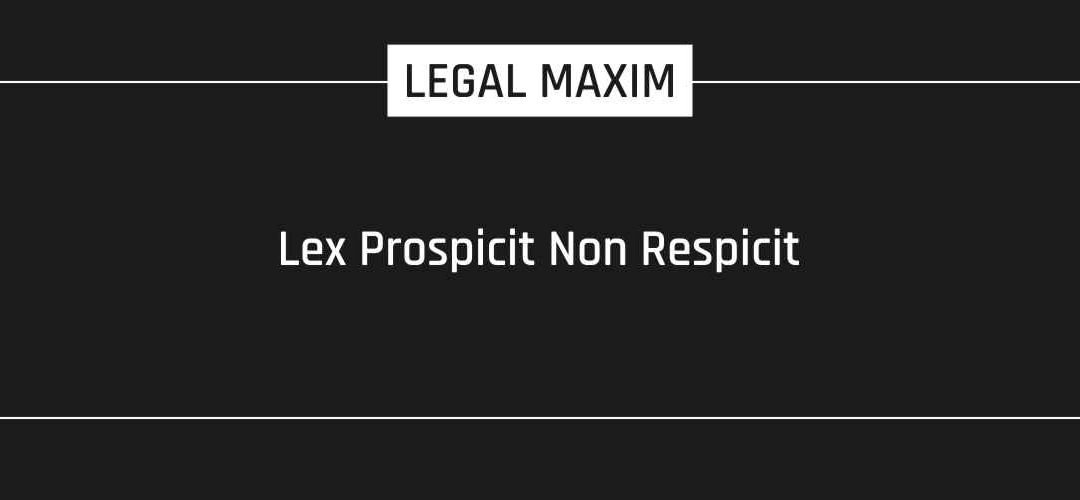Literal Meaning
The Law looks forward, not backward.
Origin
Latin
Explanation
An established rule of interpretation of legislation is that unless a contrary intention appears, it is presumed not to be intended to have a retrospective operation. The idea behind this is that a current law should govern current activities. Law passed today cannot apply to the events of the past. According to this maxim, the law does not deal with past events and matters. As a general rule, laws shall have only a prospective effect and must not be applied retroactively in such a way as to apply to pending disputes and cases. The rule is intended to the tendency of retroactive legislation to be unjust and oppressive on account of its liability to punish individuals for violations of laws not yet enacted, unsettle vested rights, which is unconstitutional. Thus, the jurisdiction of a court depends on the law existing at the time an action is filed. In simple terms, a statute continues to be in force concerning all rights that had accrued before its amendment.
Case Law
In CIT v. Vatika Township (P) Ltd., the Supreme Court held that the proviso to Section 113 of the Indian Income Tax Act, 1961 was prospective and not retrospective. In so holding, the Constitution Bench adverted to certain general principles as under: – “Of the various rules guiding how a legislation has to be interpreted, one established rule is that unless a contrary intention appears, a legislation is presumed not to be intended to have a retrospective operation. The idea behind the rule is that a current law should govern current activities.
In R. Rajagopal Reddy v. Padmini Chandrasekharan, the court was called upon to interpret the Benami Transactions (Prohibition) Act, 1988. Thus, the court overruled Mithilesh Kumari v. Prem Behari Khare, in concluding that the 1988 Act was prospective and not retrospective. In so overruling the Division Bench judgment, this Court held that the Act is not expressly retrospective so that an inquiry would lie as to whether it could be said to be clarificatory or declaratory.
